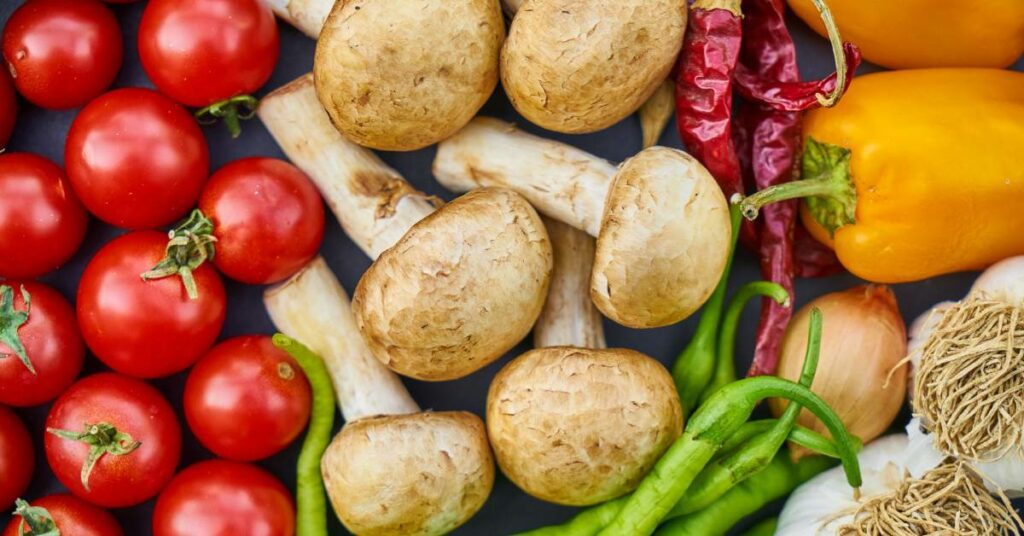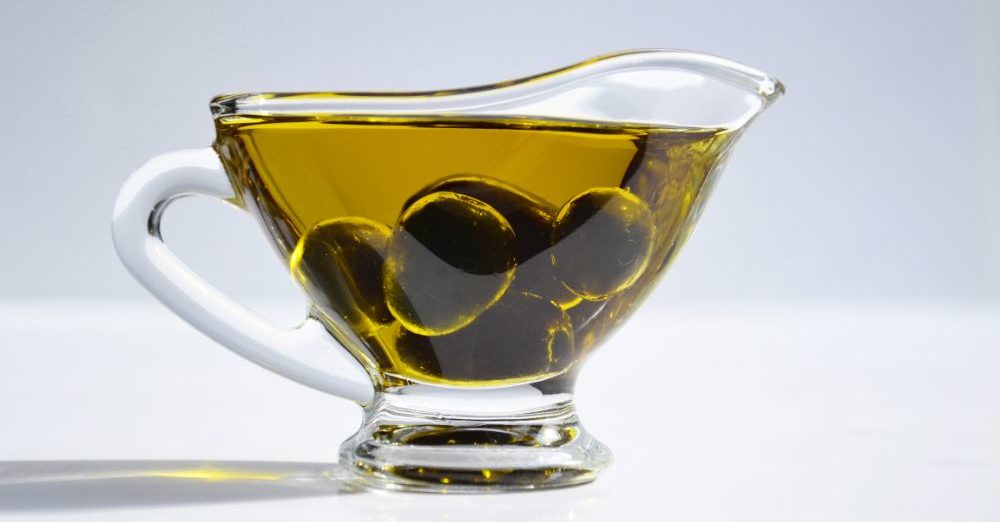As I’ve mentioned in other posts on this website, I personally use the Mediterranean Diet to reduce inflammation. In my case, mostly for some chronic joint pain. As a former healthcare professional, I always look to the well-documented research of medical professionals rather than the anecdotes put forth by promoters of dietary fads.
The Mediterranean Diet has both the scientific research and the large-scale population data to prove its efficacy.
One of the reasons why the Mediterranean Diet is anti-inflammatory is because it is rich in antioxidants and anti-inflammatory compounds such as polyphenols, flavonoids, and omega-3 fatty acids. These compounds can help to neutralize free radicals, reduce oxidative stress, and modulate the immune system, which in turn can help to reduce inflammation.
Furthermore, the Mediterranean Diet is low in pro-inflammatory substances such as are found in highly-processed foods, as well as red meat, refined grains, and sugary drinks…all of which are associated with increased inflammation in the body.
The evidence shows that adherence to the Mediterranean Diet can lead to a reduction in inflammatory biomarkers such as C-reactive protein (CRP), interleukin-6 (IL-6), and tumor necrosis factor-alpha (TNF-α).
Additionally, there is an inverse correlation with the developing chronic diseases such as cardiovascular disease, type 2 diabetes, cancer, and neurodegenerative disorders (ex. Alzheimer’s disease).
A recent study published in the Journal of Biomedicines demonstrated how a Mediterranean Diet can be used as a tool to combat inflammation and chronic diseases.
Another study published in the New England Journal of Medicine found that a Mediterranean Diet supplemented with extra-virgin olive oil or nuts reduced the incidence of major cardiovascular events among high-risk individuals, compared with a low-fat diet.
The medical literature is rich with these types of studies. On the other hand, proponents of such fads as the Keto Diet or the Paleo Diet rely much more on anecdotal evidence and flawed research. For a long term lifestyle, there isn’t a better template than the Mediterranean Diet to reduce inflammation and the associated chronic diseases.
Italian Foods That Reduce Inflammation
But which foods should we eat in the Mediterranean diet to reduce inflammation? There are many foods in the daily Italian kitchen that are rich in antioxidants and anti-inflammatory compounds.

For starters, look for the rainbow of bright colors found in plant foods: red, green, yellow, orange, purple. Fruits and vegetables such as berries, leafy greens, cruciferous vegetables, tomatoes, peppers, and citrus fruits are all excellent sources of antioxidants and anti-inflammatory compounds.
Whole grains, such as brown rice, quinoa, and whole wheat, contain fiber, vitamins, minerals, and antioxidants that can help to reduce inflammation. Nuts and seeds, including almonds, walnuts, flaxseeds, and chia seeds, are rich in omega-3 fatty acids, which have been shown to have anti-inflammatory effects, and they also contain polyphenols and other antioxidants.
Legumes, such as beans, lentils, and chickpeas, are high in fiber, protein, and antioxidants and have been shown to have anti-inflammatory effects. Certain varieties of mushrooms contain powerful immune regulating and anti-cancer compounds called polysaccharides.
Fatty fish, such as salmon, mackerel, anchovies and sardines, are rich in omega-3 fatty acids, which have potent anti-inflammatory effects. They also contain other nutrients such as vitamin D and selenium.
Extra-virgin olive oil is a rich source of polyphenols and other antioxidants, as well as monounsaturated fatty acids that can help to reduce inflammation. Extra virgin olive oil contains oleocanthal, which activates the same anti-inflammatory receptors as ibuprofen without the side effects.
The addition of fermented foods and beverages to promote health in the gut microbiome is important, too. If you aren’t able to incorporate enough of these into your diet, then a probiotic supplement might be a possible solution.
Finally, many spices and herbs such as turmeric, ginger, cinnamon, oregano, and rosemary have potent antioxidant and anti-inflammatory properties. In fact, spices are anti-inflammatory powerhouses. Meat cooked with these spices can neutralize potential inflammation.
Consuming a variety of these foods on a regular basis can help to reduce inflammation in the body and promote overall health and well-being.
Tips to Reduce Inflammation With the Mediterranean Diet
OK, so all of the scientific evidence is great. But how do we put this information into action that will result in improved health and well being, with a reduced incidence of inflammatory diseases? Here are seven suggestions to get started:
Italians Love Cruciferous Vegetables
Cruciferous vegetables are an essential component of the Mediterranean Diet due to their high nutritional value and versatility in cooking recipes. These vegetables, such as broccoli, cauliflower, Brussels sprouts, and kale, are excellent sources of fiber, vitamins, minerals, and antioxidants. They are also rich in glucosinolates, which are compounds that have been shown to have anti-inflammatory and anticancer properties.
In Mediterranean cuisine, cruciferous vegetables are often used in Italian salads, soups, and side dishes. They can be grilled, roasted, sautéed, or steamed, and can be combined with other ingredients such as garlic, lemon, and olive oil to enhance their flavor and nutritional value. For example, roasted cauliflower with lemon and garlic is a popular Mediterranean dish that is both delicious and nutritious.
Beans for Protein and Fiber
Beans are an important component of the Mediterranean Diet due to their high fiber and protein content, as well as their anti-inflammatory properties. There are various types of beans, including black beans, kidney beans, chickpeas, and lentils, that can be used in a variety of ways in this diet regime.
In Mediterranean cuisine, beans are often used in soups, stews, and salads. For example, a traditional Mediterranean dish such as hummus is made from chickpeas, which are blended with tahini, olive oil, lemon juice, and garlic. Another example is lentil soup, which is a staple dish in many Mediterranean countries. Pasta e Fagioli is a popular soup from the South of Italy.
Beans can also be used as a meat substitute in Italian vegetarian and vegan dishes. For example, black beans can be used to make black bean burgers or added to salads, while chickpeas can be used to make vegetarian chili or added to pasta dishes.
Additionally, beans can be used as a side dish, such as in a Mediterranean-style bean salad that is made with a variety of beans, chopped vegetables, and a light dressing made from olive oil and lemon juice.
Add Extra Virgin Olive Oil AFTER Cooking
Extra virgin olive oil (EVOO) is a fundamental component of the Mediterranean Diet and is used extensively in this dietary regime. EVOO is rich in monounsaturated fatty acids, polyphenols, and other antioxidants, which have been shown to have anti-inflammatory and cardiovascular benefits.
In the Mediterranean Diet, EVOO is used as a primary source of fat for cooking and as a dressing for salads and vegetables. It is commonly used in dishes such as grilled vegetables, seafood, pasta, and soups. It can also be used as a condiment, drizzled over bread or added to dips such as hummus.

When EVOO is heated for cooking, it can undergo changes in its chemical composition, which can affect its nutritional value. The heat can break down the fatty acids and antioxidants in EVOO, reducing its anti-inflammatory properties. However, when used in moderation, EVOO can still be a healthy choice for cooking.
On the other hand, adding EVOO raw to dress vegetables and other foods is the healthiest way to consume it. When used in this way, the EVOO is not exposed to high temperatures, preserving its nutritional value and maintaining its anti-inflammatory properties.
A Dash of Fresh Herbs for Flavor and Health
Fresh herbs are an important part of the Mediterranean Diet, as they add flavor, aroma, and nutritional value to dishes. Herbs such as basil, parsley, thyme, rosemary, oregano, and mint are commonly used in Mediterranean cuisine, both fresh and dried.
From a flavor standpoint, fresh herbs add a bright and fresh flavor to dishes that cannot be replicated with dried herbs or spices. For example, basil adds a sweet, aromatic flavor to tomato-based dishes, while oregano has a slightly bitter and pungent flavor that compliments meats, fish, and vegetables. Rosemary has a strong, woody flavor that works well with roasted meats, potatoes, and vegetables, while mint adds a cool, refreshing flavor to salads, drinks, and desserts.
In addition to their culinary value, fresh herbs are also rich in nutrients and antioxidants. For example, basil contains high levels of vitamin K, which is important for bone health, while parsley is a good source of vitamin C, folate, and iron. Oregano is high in antioxidants, which have anti-inflammatory properties, while thyme contains compounds that have been shown to have antibacterial and antifungal properties.
In Mediterranean cuisine, fresh herbs are used in a variety of ways. They can be added to salads, soups, stews, sauces, and marinades, as well as used as a garnish. For example, a classic Mediterranean dish such as Greek salad is made with fresh herbs such as parsley, oregano, and mint, which add both flavor and nutritional value to the dish.
Eat Your Ruffage
My great-grandmother who was born and raised in Calabria, Italy, always used to implore us to “Eat your ruffage!” It was a lesson she learned as a little girl that kept her gut healthy and happy for nearly 90 years.

Fiber is an essential component of an anti-inflammatory diet because it plays a crucial role in maintaining gut health and reducing inflammation in the body.
Fiber is a type of carbohydrate that cannot be digested by the body, meaning it passes through the digestive system mostly intact. This allows it to act as a prebiotic, feeding the beneficial bacteria in the gut and promoting their growth. A healthy gut microbiome is essential for reducing inflammation in the body, as it plays a critical role in regulating the immune system and maintaining the intestinal barrier function.
In addition to promoting gut health, fiber also helps to regulate blood sugar levels and prevent insulin resistance, which can lead to chronic inflammation. Fiber slows down the absorption of glucose into the bloodstream, preventing spikes in blood sugar levels and reducing the demand on the pancreas to produce insulin.
Furthermore, fiber can help to reduce levels of pro-inflammatory molecules in the body, such as C-reactive protein (CRP) and interleukin-6 (IL-6). These molecules are associated with chronic inflammation and are risk factors for a number of chronic diseases, including heart disease, diabetes, and cancer.
Fiber is found in a variety of plant-based foods, including fruits, vegetables, whole grains, legumes, and nuts. To incorporate more fiber into an anti-inflammatory diet, it is recommended to consume at least five servings of fruits and vegetables per day, choose whole grains over refined grains, and include legumes and nuts in meals and snacks.
Red Red Wine Will Make You Feel So Fine…
Red wine, in moderation, has been shown to provide several health benefits to people who follow this diet.
Red wine contains polyphenols, which are natural compounds that have anti-inflammatory and antioxidant properties. One of the most well-known polyphenols found in red wine is resveratrol, which has been shown to have cardiovascular benefits, including reducing the risk of heart disease. Resveratrol has also been linked to reduced inflammation, improved insulin sensitivity, and improved brain function.

Moderate red wine consumption has been associated with several health benefits, including:
- Reduced risk of heart disease: Red wine contains antioxidants that help to prevent the buildup of cholesterol in the arteries, which can lead to heart disease. Studies have shown that moderate red wine consumption can reduce the risk of heart disease by improving blood flow and reducing inflammation in the body.
- Improved insulin sensitivity: Red wine has been shown to improve insulin sensitivity, which is important for preventing type 2 diabetes. This is due to the presence of resveratrol, which can improve glucose uptake and reduce insulin resistance.
- Lowered risk of certain cancers: Resveratrol has been shown to have anti-cancer properties, and moderate red wine consumption has been linked to a reduced risk of certain types of cancer, including colon, prostate, and breast cancer.
It is important to note that moderation is key when it comes to red wine consumption. While moderate red wine consumption has been associated with health benefits, excessive consumption can have negative effects on health, including increased risk of liver disease, certain cancers, and addiction.
Fasting for Cellular Rejuvenation
Italian food is extremely healthy, but once in a while a little fasting can go a long way. The age-old practice of fasting can be added to the Mediterranean Diet regime to promote anti-aging and cellular rejuvenation through a method called intermittent fasting (IF).
Intermittent fasting involves periods of restricted food intake, followed by periods of normal eating. There are several ways to practice intermittent fasting, including the 16/8 method, where food is consumed during an 8-hour window and fasting is practiced for 16 hours, or the 5:2 method, where food is consumed normally for five days and calorie intake is restricted to 500-600 calories for two non-consecutive days.
Intermittent fasting has been shown to have several health benefits, including promoting cellular rejuvenation and reducing inflammation in the body. During periods of fasting, the body eventually initiates a process called autophagy, where cells break down and recycle old or damaged proteins. This process helps to remove cellular waste and can promote cellular rejuvenation, reducing the effects of aging and improving overall health.
To incorporate intermittent fasting into the Mediterranean Diet regime, it is recommended to start slowly and gradually increase fasting periods over time. It is important to maintain a balanced diet during eating periods, consuming a variety of plant-based foods, healthy fats, and lean proteins.
The Best Anti Inflammatory Diet
The Mediterranean Diet to reduce inflammation in the body works by providing a rich source of antioxidants and anti-inflammatory compounds, while limiting the intake of pro-inflammatory foods. Adherence to the Mediterranean Diet has been associated with a lower risk of developing chronic diseases such as cardiovascular disease, type 2 diabetes, cancer, allergies, asthma, chronic fatigue, various autoimmune diseases, and neurodegenerative disorders.
The best thing you can do for your health is to cut down or cut out inflammatory foods and increase anti-inflammatory foods by starting the Mediterranean Diet today!
FAQ: Is The Mediterranean Diet Anti Inflammatory?
Yes, following a Mediterranean Diet has been shown to decrease the levels of pro-inflammatory molecules in the body, such as C-reactive protein (CRP), and increase anti-inflammatory molecules, such as adiponectin.
